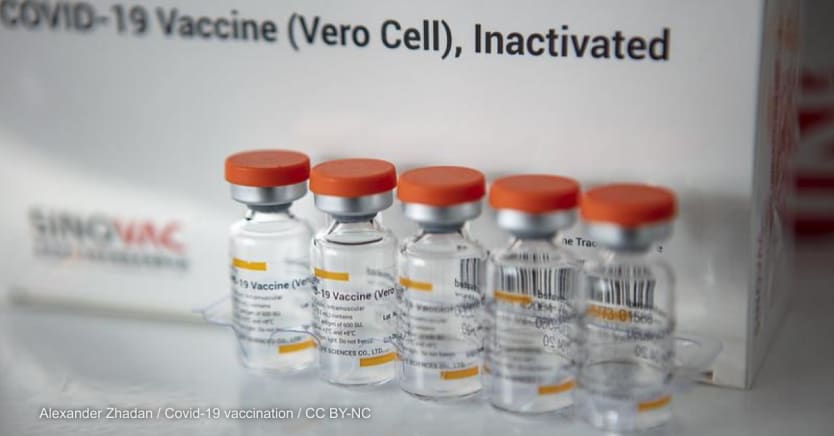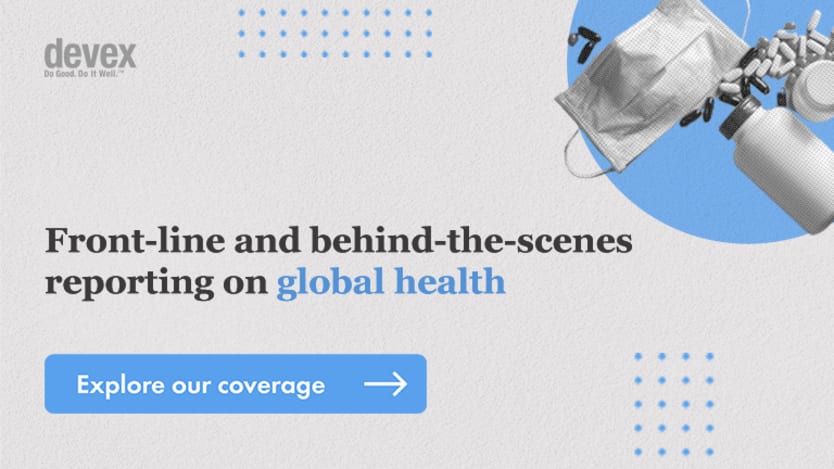
CoronaVac, a two-dose COVID-19 vaccine manufactured by Sinovac Biotech, has been shown to be safe and generate a strong antibody response in children ages 3 to 17, based on data from a randomized phase 1/2 clinical trial published in The Lancet.
Sign up for Devex CheckUp
The must-read weekly newsletter for exclusive global health news and insider insights.
Adverse reactions occurred within 28 days in 146 of the participants across the trial groups, but most were mild to moderate, according to the study, with pain at the injection site the most commonly reported symptom.
Those who received 3 micrograms per dose of the vaccine generated higher levels of antibodies than those who received just 1.5 micrograms per dose, prompting the authors to recommend the former.
But in a commentary, Bin Cao from the China-Japan Friendship Hospital in Beijing called for further evaluation of the long-term effects of vaccines on children’s development, and said: “safety should be the paramount factor to be considered before COVID-19 vaccine can be rolled out in younger children.”
Why it matters: Some higher-income countries have started vaccinating younger age groups. While children are seen as low risk for COVID-19, they can still get seriously sick from the virus. In Brazil, doctors have expressed concerns over the high numbers of babies and small children dying from COVID-19.
Are health care workers in Africa getting vaccinated?
While African countries are prioritizing health care workers in their vaccination plans, a lack of supply and vaccine hesitancy is limiting progress.
But given global supply shortages, experts argue the priority should still be to vaccinate front-line and health care workers in low- and middle-income countries, and vulnerable adults who are at high risk of suffering from severe COVID-19.
What’s the caveat? The study only had 550 participants, and so “the results should be interpreted with caution as it was not possible to draw strong statistical conclusions,” according to study authors. It also involved only one ethnic group: Han Chinese.
What happens next: Participants will be followed for a year for longer-term safety and immune response data.





